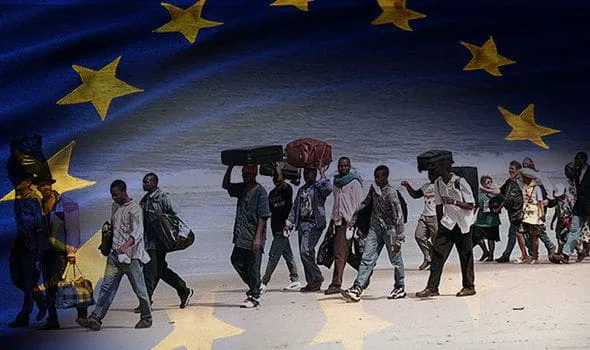Rome – “I do not think it’s time for Italy to leave the euro”. In this sentence pronounced yesterday by Luigi Di Maio, vice president of the Italian Chamber and the candidate to lead a possible government for the 5-star movement, many have read yet another U-turn on the single currency. In reality it is the completion of a path – started almost a year ago with a post on Beppe Grillo’s blog – which has now transformed the M5s into a dialoguing force frome the disruptive one of the origins.
In fact, the reason why the premier candidate does not see any more the time to leave the single currency, as himself explains, is that “the Franco-German axis is no longer so strong”. Therefore, he thinks, for Italy “there is more space” to influence the debate on European rules. Di Maio shows himself ready for dialogue and hopes to “not arrive at the referendum on the euro”, which “would be an extreme ratio”.
It’s difficult to give him reason on the weakness of the Franco-German axis, while the Parliaments of France and Germany are preparing to approve, next January 22, an identical resolution that commits the two countries to seek ever closer integration on the ground of enterprise law, labor market and social rights. However, the 5-star candidate’s propensity to discuss with European partners is to be recorded.
It will be a hard discussion, of course. If the Movement no longer pursues the exit from the euro, it’s equally true, however, that it’s ready to give battle to be “heard in Europe. We want to count above all in the protection of our enterprises”, indicates the political leader of Grillo’s formation. He identifies the harshest battlefield in the economic ground. In fact, he attacks the rule on the limit of 3% of GDP for public deficit. It is a rule that “does not work”, says the campanian being convinced that “we must exceed 3% and make high-deficit investments, to ensure that there is a revenue for the State with which to pay the public debt”. A recipe destined to clash with many resistances in Brussels and other European capitals.

![Fluttuazioni mercati finanziari variazioni tasso di cambio dollaro-euro [foto: imagoeconomica]](https://www.eunews.it/wp-content/uploads/2025/04/Imagoeconomica_737816-350x250.jpg)

![[foto: imagoeconomica, rielaborazione Eunews]](https://www.eunews.it/wp-content/uploads/2025/03/trump-criptovalute-350x250.png)
![[foto: imagoeconomica]](https://www.eunews.it/wp-content/uploads/2025/02/Imagoeconomica_1678836-350x250.jpg)

![Leonardo da Vinci [foto: Wikimedia Commons] e l'avocetta [foto: Ron Eggert, Wikimedia Commons]. Sono loro a contendersi le prossime banconote da 100 euro](https://www.eunews.it/wp-content/uploads/2025/01/leonardo-avocetta-350x250.png)



![Riunione settimanale del collegio della commissione von der Leyen [foto: Christophe Licoppe/imagoeconomica]](https://www.eunews.it/wp-content/uploads/2025/04/Imagoeconomica_2427477-120x86.jpg)
![[foto: imagoeconomica]](https://www.eunews.it/wp-content/uploads/2025/04/Imagoeconomica_1457633-120x86.jpg)
